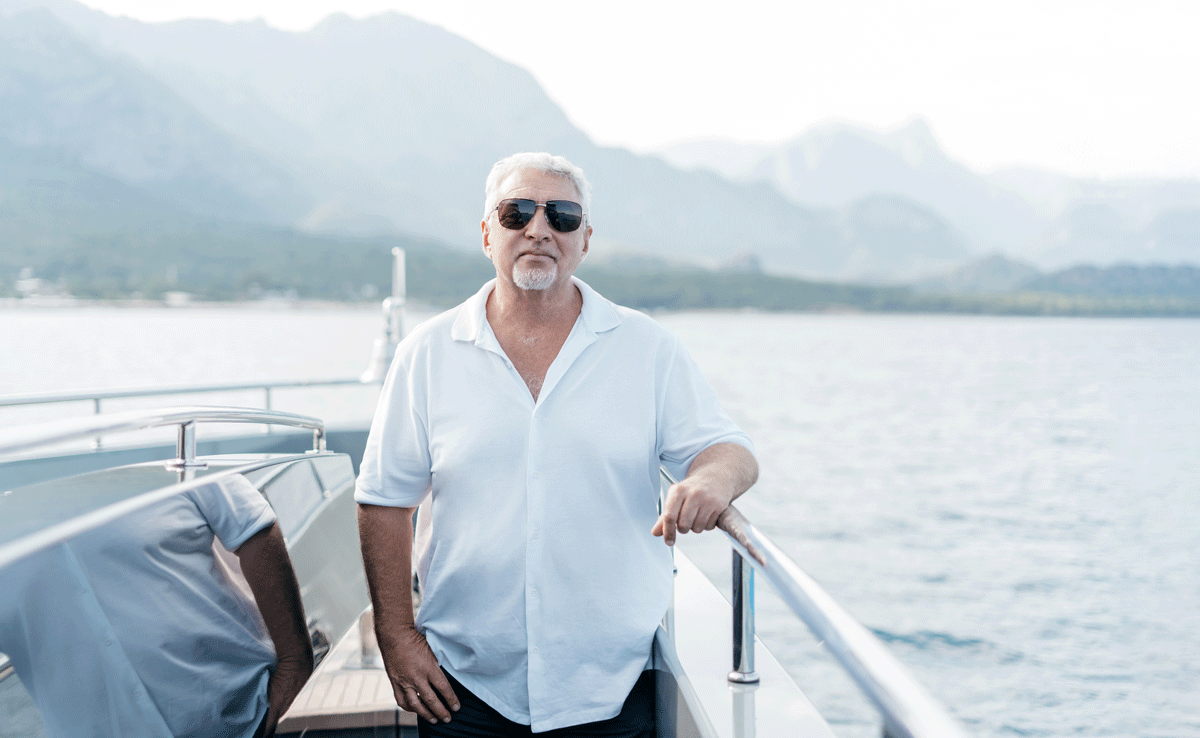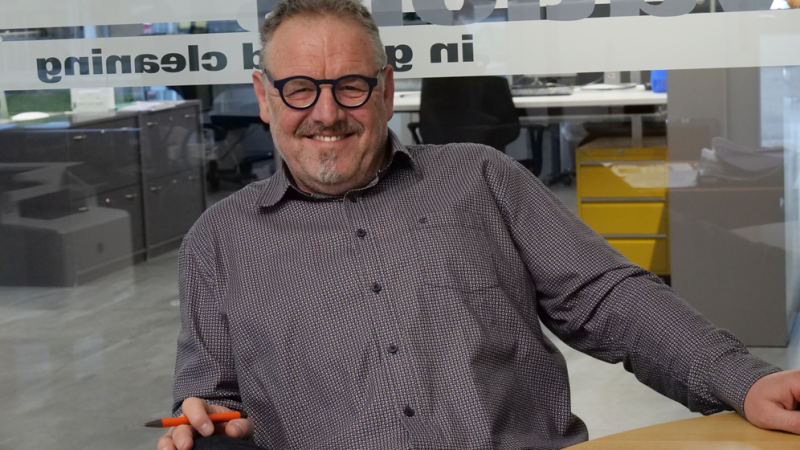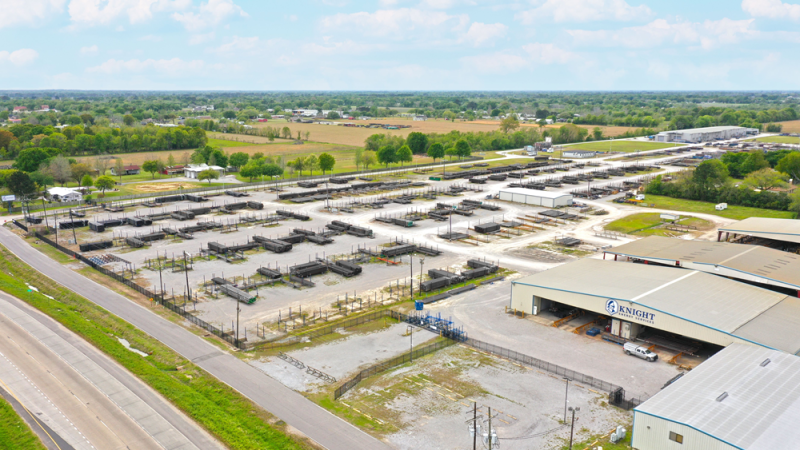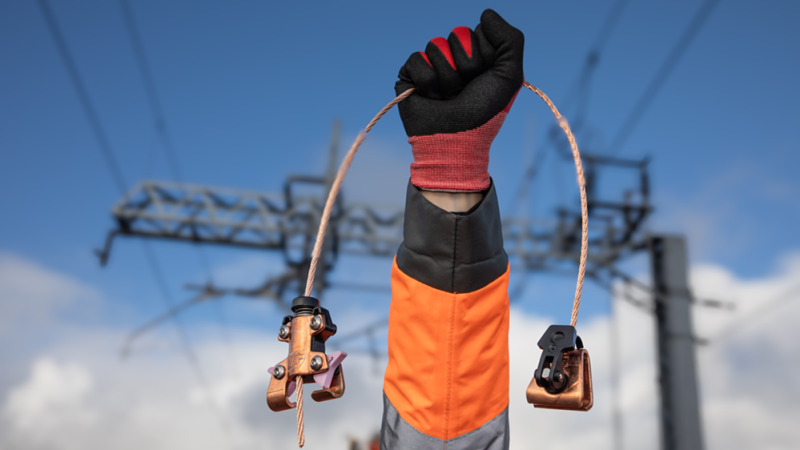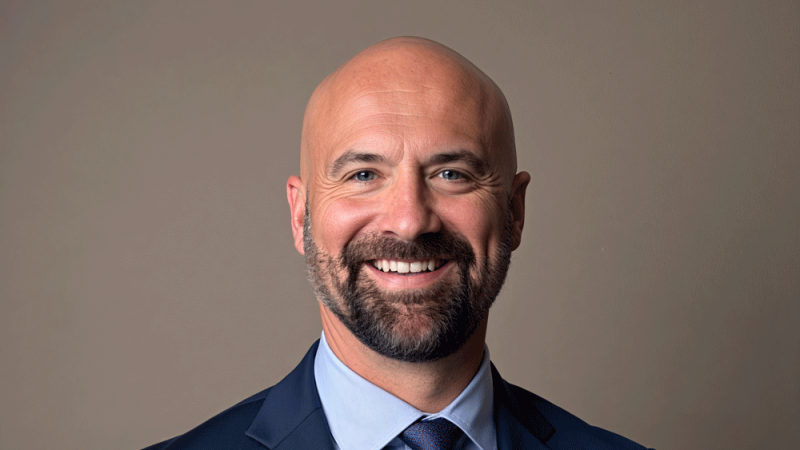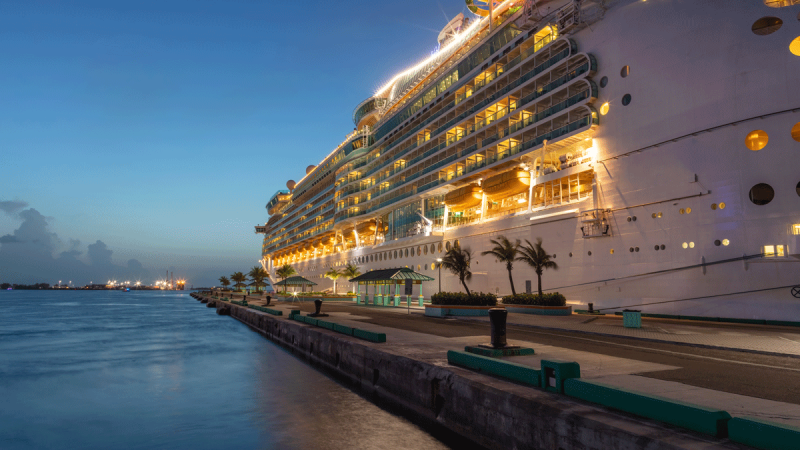In 2007, Alexei Mikhailov decided to build a boat. When he finished the boat, he sold it. Then he made another one, and suddenly he realised he had a business. Back then, it was not a large business. Just Mikhailov and three to four other people. In 2013 Mikhailov moved the business to Turkey, where it expanded. Following a steep uptick in demand after the COVID-19 pandemic, the company grew to the point where today the firm has 15 boats under construction at a time.
“We are extremely busy right now,” Mikhailov says simply.
The reason Bering Yachts are so in demand is their rare specialism in the industry. The company focuses on building vessels under 24 metres in length but built from steel and aluminium rather than fibreglass. Despite their size, they are certified for commercial charter, with virtually unrestricted navigation capabilities.
“It is a unique niche that gives you the same capability as a superyacht range-wise, in the region of six to seven thousand miles,” Mikhailov explains. “You can legally charter them through numerous jurisdictions, and they will support the level of safety offered by commercial craft with no compromises on fire safety, stability, submersibility or any of the other important aspects of safe navigation.”
Ultimately, what Bering Yachts offers is a small boat with the same complexity and comfort levels as a 50-metre yacht.
“All of our boats feel like superyachts, for one simple reason,” Mikhailov says. “It is dictated by the class of superyachts, the world-class manner of their construction, but at a smaller boat scale. We achieve the same vibration and noise readings, and the motion is very similar to that of a ship rather than a smaller Styrofoam boat.”
The majority of boats under 24 metres in length are made from fibreglass, weighing from 400 to 600 kilos. Bering Yachts, while they might appear comparable in length, are different by every other measure, and for good reason.
“We don’t put ballast in there,” Mikhailov says. “It’s about structure strength, equipment, tanks. We use all of that weight, and it translates into sea-kindness, lower acceleration, and inertia which gives you a perception of comfort. Our boats are as comfortable as the best superyachts, and can go anywhere on the planet where boats can go.”
Bering Yachts also offers high-quality aftersales care, including crew management and maintenance.
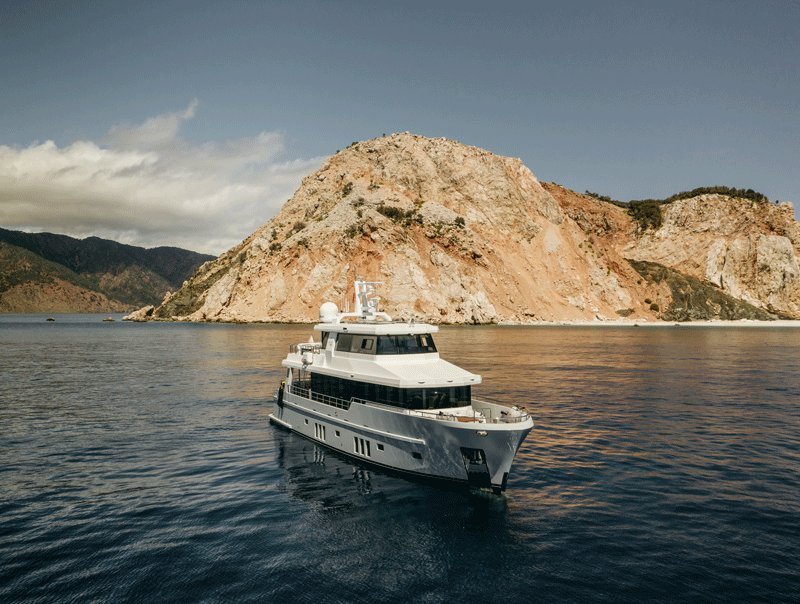 A Luxury Yacht by Any Other Size
A Luxury Yacht by Any Other Size
The tricky part, Mikhailov points out, is demonstrating that key difference to customers comparing Bering’s vessels with others of the same length.
“For some reason, a lot of people judge a boat by only one dimension, its LOA [Length Overall]. But we are talking about a three-dimensional creature,” Mikhailov argues. “Comparing our boats to the equivalent fibreglass vessels is like comparing apples and oranges. They have different volumes, different displacement levels, different fuel consumption and range, it does not even compare when you get into the specifications.”
When customers only look at the LOA, often the next number they look at is the price, and Bering Yachts cannot compete on that front because it is effectively selling three times the amount of product in the same space.
Bering Yachts has invested heavily in marketing, through educational videos and short films on the construction focus of the boats, to demonstrate just what Bering Yachts are – luxury vessels in a more compact space.
“We share the information about how we build the boats, how they are different, why they are heavy, and why that weight is your ally,” Mikhailov tells us.
While Bering has always focused on smaller boats, it is not restricted to them, and when we speak with Mikhailov the company is working on a project to build a 225-foot-long vessel. But this is not the only way that Bering is expanding.
Unfurling the Business
Since 2014, Bering Yachts has made its home in the Antalya Free Zone, an estate dedicated to boat building. It is a limited area consisting of one square kilometre of shops and production facilities where Bering occupies nine sheds. But as word has spread about Bering Yachts, so must the business.
“We ran out of space here, so we are fabricating hulls at facilities in Istanbul and Bulgaria for European customers because it is easier for them to travel and it is useful to work in the same regulatory jurisdiction,” Mikhailov says.
To staff these new locations and bring recruits up to the necessary level of skill and qualification, Bering has established education programs to train people on the shop floor and in its offices. Bering’s expansion also means a need to seek out skilled specialists.
“Our boats are class certified, so we cannot just hire any welder off the street,” Mikhailov says. “They need credentials that must be reestablished every year. It is skilled labour.”
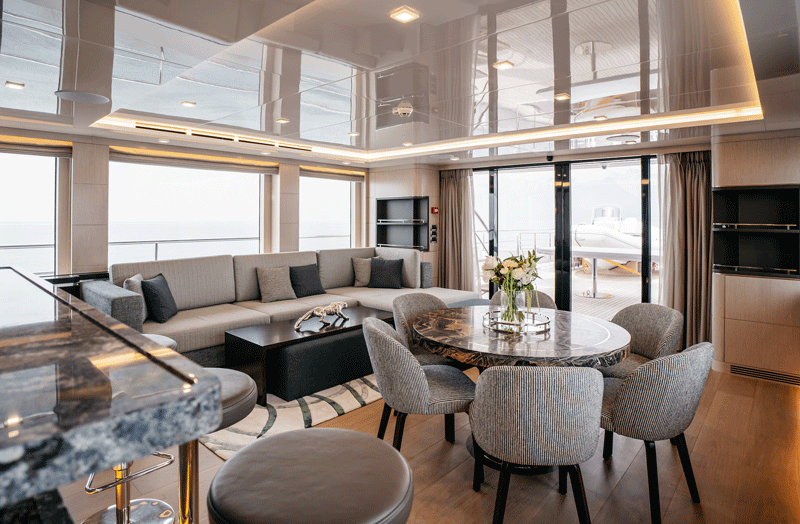 A Mobile Safe Haven
A Mobile Safe Haven
Skilled labour means more expensive labour, and at the same time, material costs have been rising across the board. However, as Mikhailov points out, those rising costs also make a Bering Yacht a wise investment.
“These boats last indefinitely with good care, and no Bering has been sold for less than it was bought,” Mikhailov says. “The value of steel boats naturally rises alongside inflation and the cost of raw materials needed to build a new vessel.”
This is not the only way Mikhailov sees Bering’s vessels as a sound investment, however.
“I spoke to a customer looking to buy a Bering 72 yesterday, and he told me why he was looking,” Mikhailov tells me. “He said that the world is going through some dark times. He wanted to have a safe and secure mobile real estate, a place that provides more comfort and safety. In this new world, we don’t know when and where the next conflict will emerge because they are not developing in natural ways. It is going to be an interesting ten years, and the Bering is a safe haven. It is self-sufficient. You can be out on the water for an indefinite period of time. You can fuel once a year, cross any body of water, be at any quarter of the planet at your discretion.”

